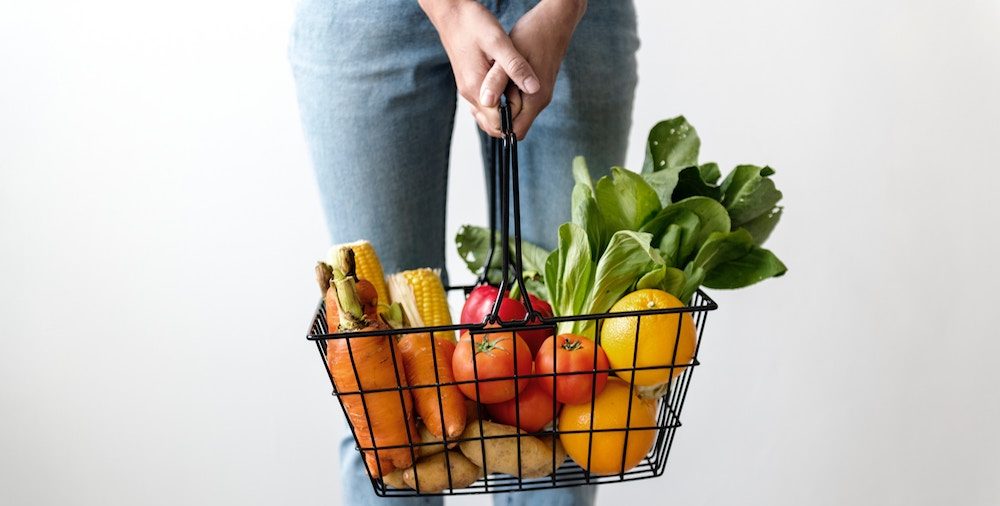This is a post from Clint Haynes, a Certified Financial Planner®and Financial Advisor in Kansas City, Missouri. He is also the founder and owner of NextGen Wealth. You can learn more about Clint at his website NextGen Wealth.
According to the Bureau of Labor Statistics, food takes the second spot as the country’s largest expense among households. And while other expenditures are pretty much fixed, there are plenty of ways you can cut back on your food budget.
With that being the case, let’s check out 5 tips that anyone can implement to save some money on their grocery bills.
Plan your meals ahead
There’s a lot of benefits in planning your meals ahead. Ideally, you should limit your trips to the grocery to just once a week, or perhaps every 4-5 days, depending on your needs.
This saves you precious time, energy, and gas since it allows you to reduce the number of trips you make to the supermarket. Time is money, and every minute you spend grocery shopping because you forgot to buy something (again) means dollars down the drain.
To make the most out of this strategy, you should prepare meals based on what items you see discounted in stores. Supermarkets usually put their weekly ads in the newspaper and on their website, so it’s pretty easy to check them out.
This way, you’re making the most out of your grocery budget and easily crafting your meal plan for the week. Also, make sure to utilize those leftovers by using them for your next dish. Doing this further increases your savings and prevents waste.
Plus, planning your meals ahead simply takes one more thing off your to-do list. And, if you’re like me, checking items off the to-do list just feels good.
Make a shopping list
Dr. Atul Gawande, the author of the best-selling book, “The Checklist Manifesto”, recommends we make checklists to protect us against failure. Why? Because lists help keep things in order and going according to plan.
When applied to grocery shopping, not only does it help us stick to our budget, it also helps us finish faster and use our time for more important stuff.
Here’s the golden rule when it comes to making lists in general: Make sure you stick to it. It’s no use if you merely use it as a “guideline”, adding or removing stuff along the way. It doesn’t work like that. To avoid this problem, you can make a standard list of items you need on a regular basis.
Stuff like bread, laundry detergent, cereal, and the daily-must haves should always be included. Next, you list down all other items you need to buy–yes, including snacks. This way, you won’t feel that you’re depriving yourself and prevent the impulse buy when you come across that bag of nachos on the next aisle.
When possible, shop alone. Kids can easily derail your shopping goals and have you buy all sorts of stuff you don’t really need. Worse, buy stuff that isn’t good for them.
Use coupons, cash-backs, and join rewards programs
Plenty of grocery stores today run rewards programs for the purpose of boosting engagement and loyalty. If you’re fine with providing basic info like your name and contact number, they can set up an account for you (or sign up for their newsletter online) where you can earn reward points which you can exchange for discounts, items, and gift cards.
Aside from in-store offerings, you can also find printable coupons online. Sites like Coupons, SmartSource, and RedPlum host a selection of coupons you can use on your next grocery store visit.
You should also take advantage of your credit card’s cash back features. An instant 5% cash back on your next grocery bill can be worth a couple of dollars and certainly adds up over time.
Don’t Shop When You’re Hungry
Let’s face it, people just don’t make the best decisions when they’re hungry. You’ll have less self-control and it’ll make you want to grab any food in sight. “Gimme that bag of Doritos, quick!”
Not only is it unhealthy, but it’s also expensive. Instead of focusing on the essentials, you end up spending more on items you don’t usually need.
Before you go out to visit the supermarket next time, eat. Or better yet, eat while you’re making your grocery list. Trust me, it will make your shopping a whole lot cheaper and faster.
Consider Generic or Store Brands
Did you know that you can save as much as 25% when you buy store brands versus name brands? A Consumer Report study found that a good number of store brand items measure up in terms of taste and quality when compared to their pricier counterparts.
Which store brand items do people buy the most to save money? Milk, bread, cheese, baked goods, cooking oil, sugar, flour, and butter are staples. And it’s not only households who appreciate these savings.
Even professional chefs, in fact, buy store brands when it comes to salt, sugar and other baking needs. Hey, if the pros are buying it, it must be good enough for you too. Also, consider frozen produce. Some name brand products cost almost double than what you’ll pay for the generic kind.
Before taking your next supermarket adventure, be sure to come back and read this. Or, better yet, come back and check it out prior to making your list. I can assure you it will be well worth your time.


 Personal Finances are certainly top of mind for many of us. If you're looking to get serious about improving your financial situation, we've got lots of great materials all over this site! Additionally, we realize that there's a lot of noise out there, and so we created PERSONAL FINANCIAL GUIDES focused on topics with all the info you need, and without any of the noise/ads/clickbait.
Personal Finances are certainly top of mind for many of us. If you're looking to get serious about improving your financial situation, we've got lots of great materials all over this site! Additionally, we realize that there's a lot of noise out there, and so we created PERSONAL FINANCIAL GUIDES focused on topics with all the info you need, and without any of the noise/ads/clickbait.